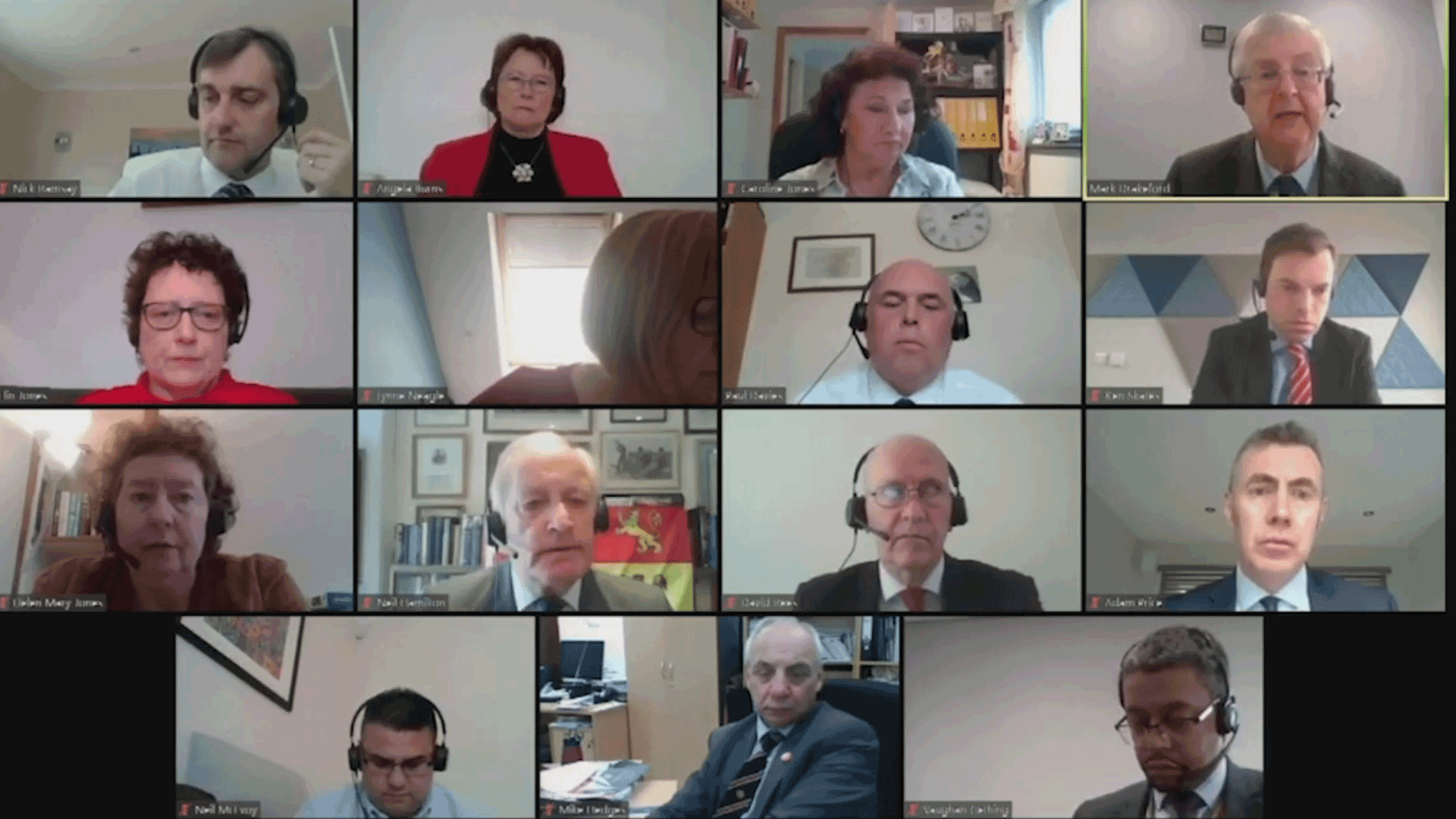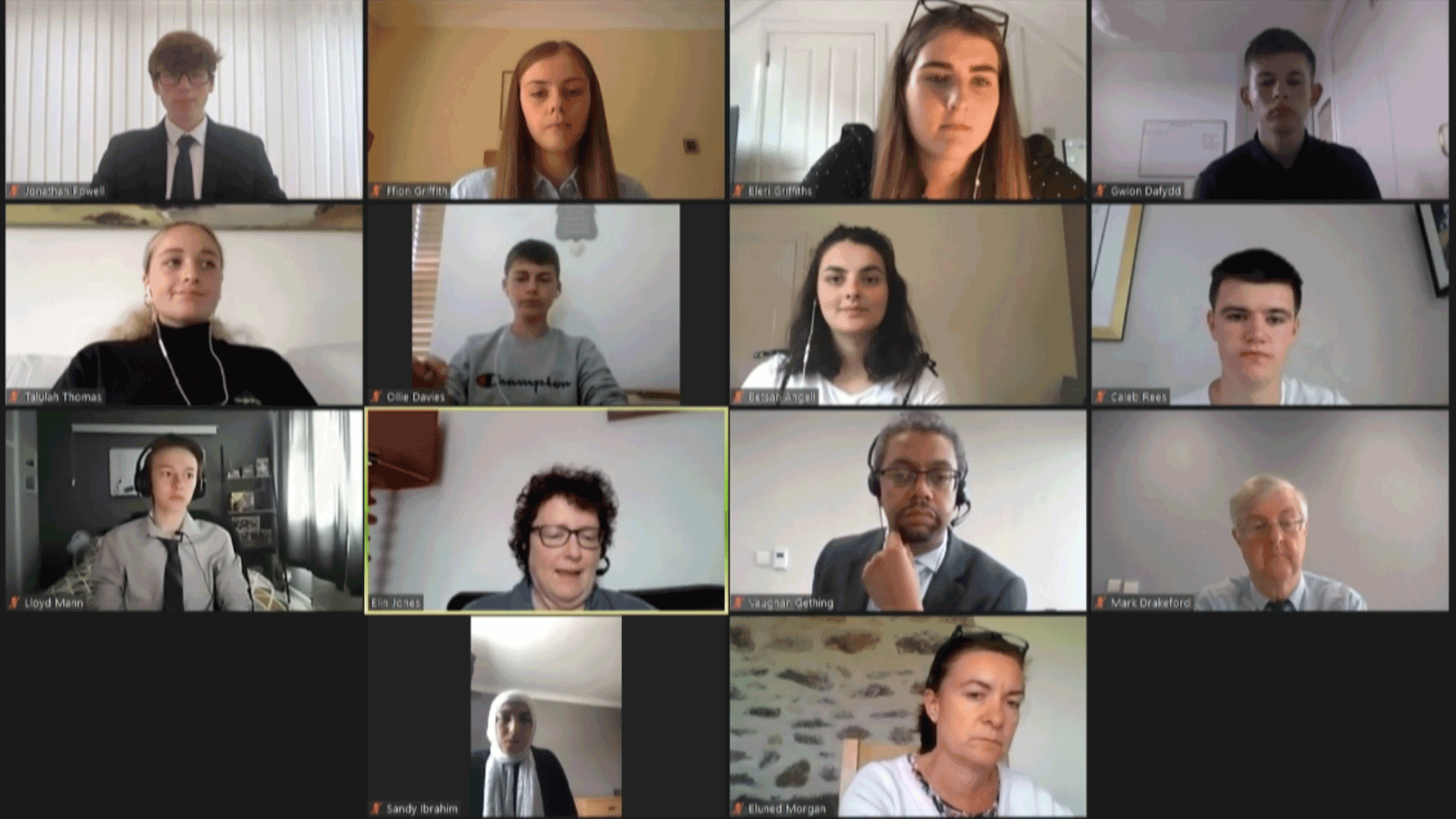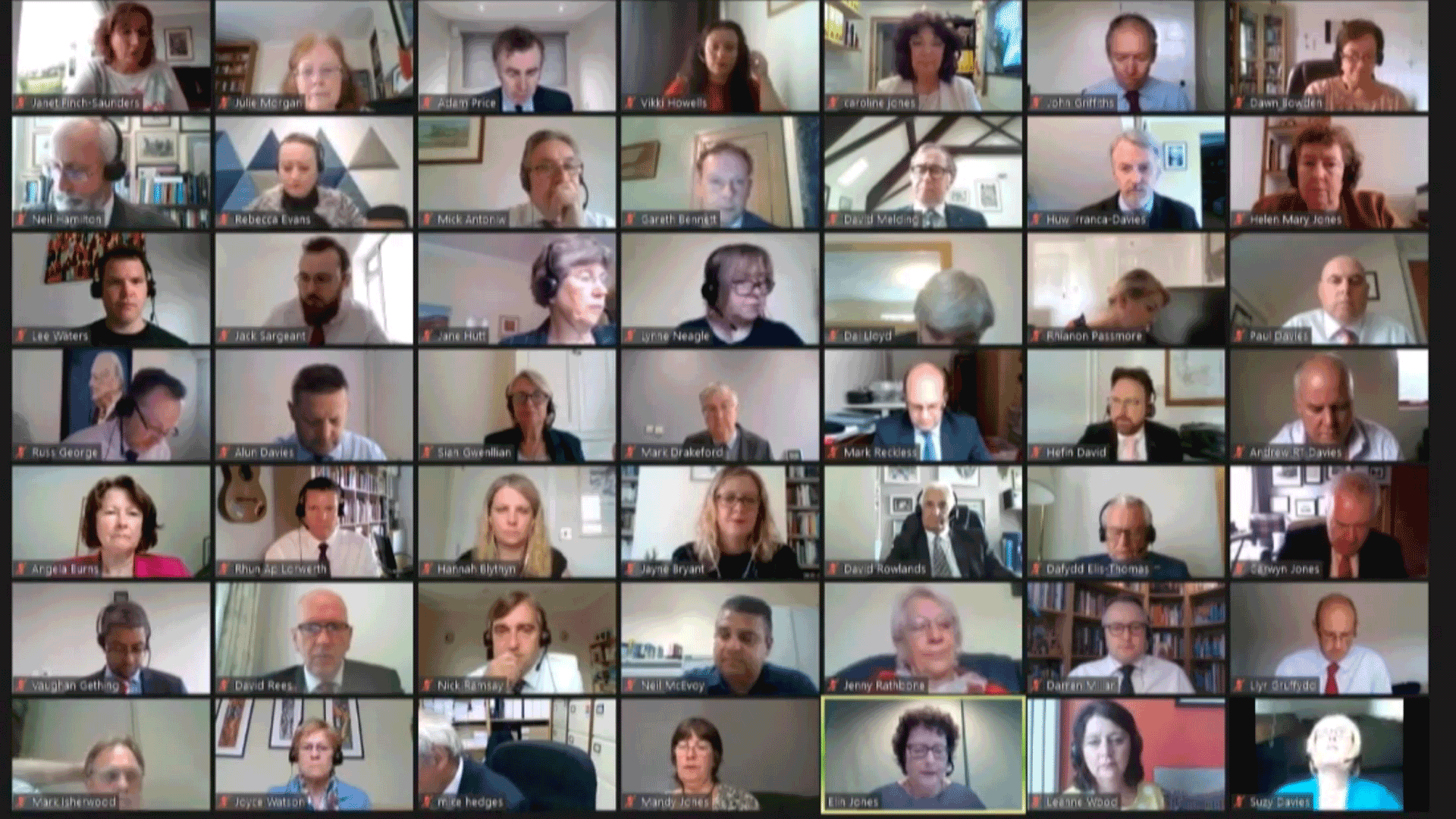Throughout the Coronavirus pandemic, the Senedd has led the way in innovation to ensure the people of Wales continue to be represented by their elected members, and that government is still subject to robust scrutiny.

From developing its own voting app for Members, to being the first UK legislature to hold virtual Plenary meetings, it has sought new solutions to the unprecedented challenges facing the Welsh Parliament.
When lockdown hit, the Senedd adapted quickly. It was the first UK parliament to hold a virtual Plenary meeting on 1 April with its first live-streamed session a week later.
Linking Members from all corners of the country was the first hurdle. Careful thought was needed to ensure seamless running of proceedings which would allow each Member the opportunity to speak in whichever language they chose.
Thorough testing was carried out of various platforms and applications to develop a system to support a bilingual audio feed in English or Welsh, allowing Members to contribute, and for viewers to watch, in which ever language they choose, and which allows the contributors to move smoothly from one language to the other without impacting on the flow of proceedings.
This has prompted many public and private organisations to approach the Senedd Commission for advice and guidance on conducting their own bilingual meetings.
The same technology was applied to Senedd committee meetings, with the Welsh Youth Parliament also using the system to meet with the First Minister, Mark Drakeford MS, and Welsh Government ministers.

With the easing of lockdown restrictions came the move to a hybrid Plenary model, allowing 20 Members to meet safely in the Siambr in the Senedd building and the remaining 40 to join online.
While block voting for Members had been used initially, new technology was introduced to allow each Member to vote individually on important legislation and regulations.
A voting app was developed uniquely by the Senedd’s expert IT staff with software designed by the in-house app development team. After an extensive trial period involving thousands of simulated votes, it was used for the first-time during Plenary on 8 July.
Since adopting these new developments, the Senedd has been sharing its experience and knowledge with other legislatures, including the UK Parliament, Scottish Parliament and as far afield as Australia, New Zealand and Canada.
Llywydd of the Senedd, Elin Jones MS, said:
The Senedd has always developed and adopted new technology to match the expectations of a modern society, and to ensure people understand and can help to shape the work being carried out on their behalf.
I am proud of what our in-house ICT team and partners have achieved under very difficult circumstances, enabling the Senedd to continue holding the Welsh Government to account by scrutinising the decisions ministers have taken during this pandemic

The new challenge of combining virtual and the physical presence of Members under strict social distancing rules during the hybrid Plenary required developing new approaches which integrated two separate technology systems to maintain the order of proceedings.
Manon Antoniazzi, Chief Executive and Clerk of the Senedd said:
At each stage we have worked hard to ensure the integrity of Senedd proceedings so that both Members and the people of Wales can be sure every step taken conforms to our high standards and the values and principles which guide the institution.
We needed a system Members could easily access, which was reliable and secure, and which allowed proceedings to flow as smoothly as possible.
The feedback we have had from Members and the public has been overwhelmingly positive and there is much we can take from these experiences to help shape how the Senedd, and other parliaments, can work in the future.
Developing an app to allows MSs’ to vote individually on important issues including legislation, changes to regulations and debates from wherever they are, electronically, has been an important step.
Mark Neilson, Head of ICT and Broadcasting said:
Like many organisations around the world, the Coronavirus lockdown has presented a number of challenges to overcome. But it has also accelerated testing and experimenting of systems and tools which, under normal circumstances, may have taken years to come to fruition.
Developing the right services to enable the Senedd to meet, first virtually, and then in a hybrid way, and ensuring they attain our high standards for reliability and security has been a challenge.
In developing the voting app, of paramount importance was reliability and security, which is why we worked with the UK National Cyber Security Centre early on to mitigate the possibility of outside interference with Senedd proceedings.
The Senedd will continue to meet in a hybrid format while continually assessing the potential for relaxing restrictions in accordance with advice from the Welsh Government, Public Health Wales and other partner organisations.

